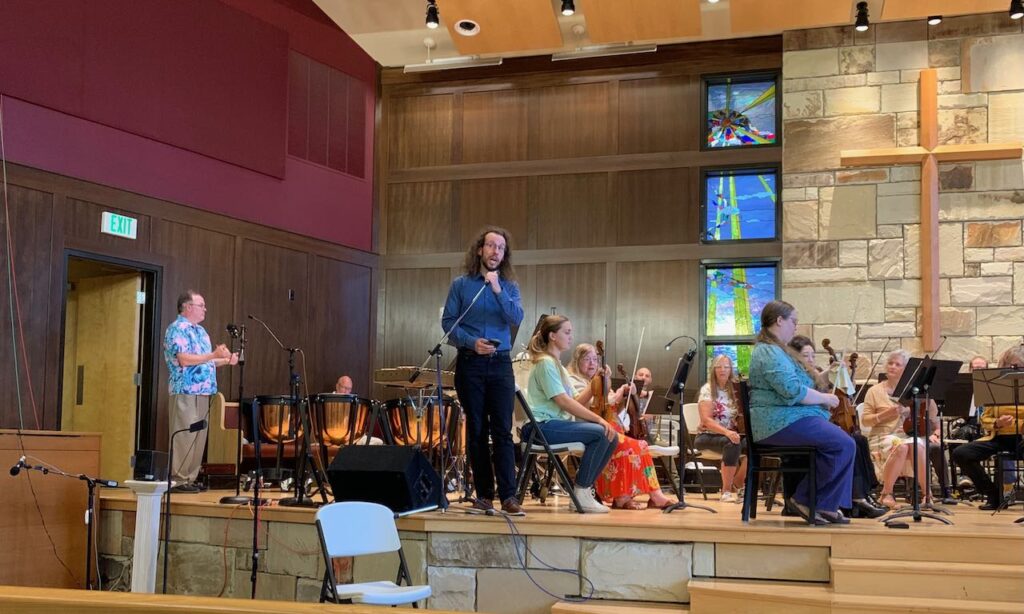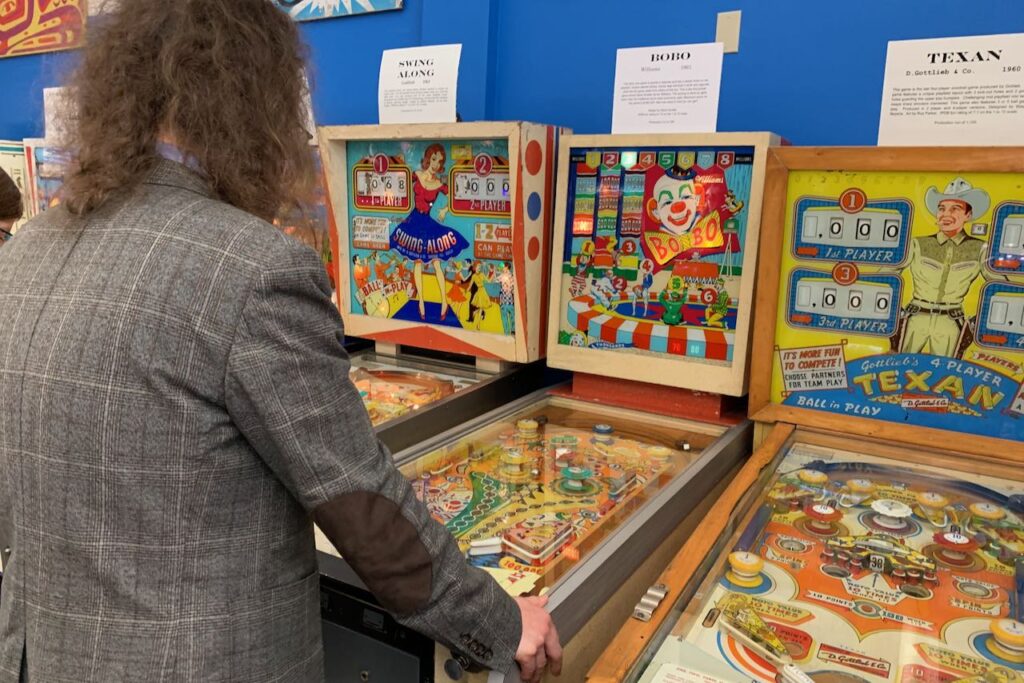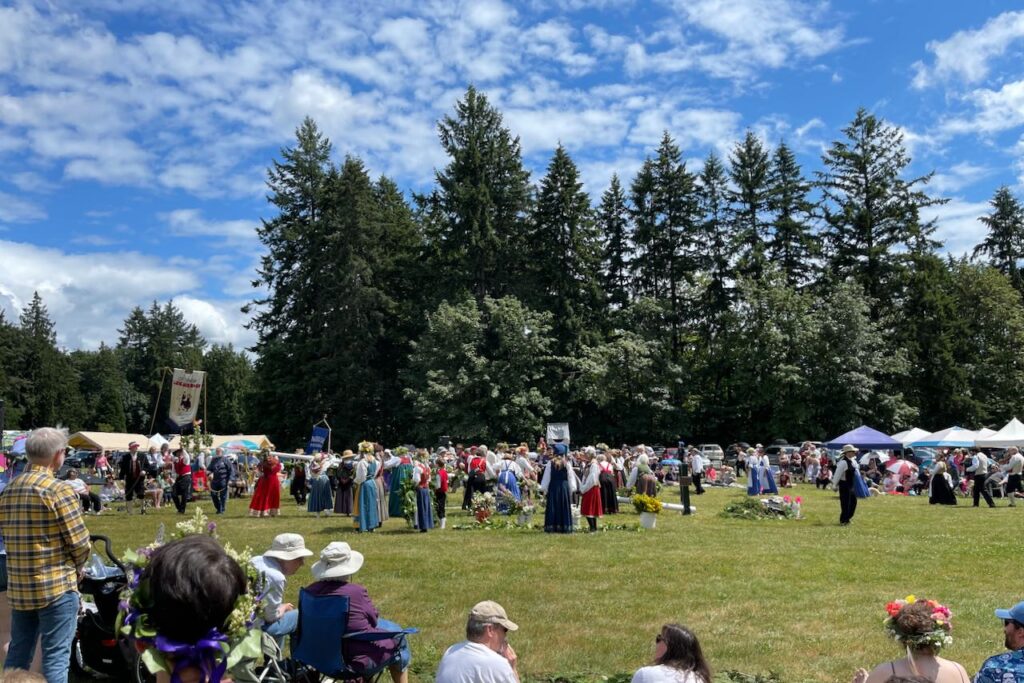What a trip! Me and my fiancée had a wonderful almost two weeks in Seattle – not only including the premiere of Brio, but plenty of other memorable experiences also. I had planned on posting a short recap of the concert Monday last week, but things don’t always turn out the way you plan. (Do they ever, really?)
In fact, throughout the second leg of our trip last week, I had little to no time to spend at the computer – a blessing in itself, to be fair – nor did getting back do much to improve that! Immediately upon coming home, we had a friend’s dog to watch over the weekend: a lively and energetic one-year-old with a two-second attention span. On top of that, another friend and colleague of mine called out of the blue on Saturday, asking if I could jump in on short notice as a tenor in a concert with his vocal ensemble – 26 hours after he called. And July was supposed to be my month off…
Singing with my dear friend David Wahlén and his High Coast Vocal Ensemble was a lot of fun, though, so I do not regret it in the slightest. David is a brilliant choral conductor and musician, and based on the audience’s rapt attention, the programme was as fun for us to sing as it was for them to listen to. In fact, this is an excellent opportunity to remind you of my earlier rant post about whether or not choral performances need choreography or other visual elements in order to reach the audience. (TL;DR they absolutely do not.)
Back to recapping Seattle. Now that the first performance is done, I feel I can legitimately be quite proud of how Brio turned out. I was already satisfied with the piece when I finished it earlier this spring, but now that it’s been fully realised in a live setting, I can put lingering doubts as to the piece’s qualities to rest.
I’m fairly certain this feeling is shared among composers across nations and generations. For me, there was the added element of not having written for orchestra in a fairly long time, as I have not had any opportunities to do so. Therefore – textbooks and academic studies notwithstanding – my orchestral embouchure was out of practice, and I worried that Brio would sound poorly as a result. Fortunately, my ideas worked quite well and the piece sounded pretty much as I had thought, with only one or two exceptions due to overestimating the number of string players, but those were easily remedied.
Overall, I was quite happy with the orchestra’s performance and the spirited interpretation by conductor Trevor Lutzenhiser, and was probably beaming in my seat through most of the piece. The Octava Chamber Orchestra also seemed to enjoy the challenge, in spite of it – as was confirmed to me afterwards – being the most technically demanding piece on the programme, which was nevertheless made up entirely of brand-new music. However, my combination of 7/8 metre with shifting accents – including different off-beat syncopations (how dare I!) – was just outside the orchestra’s comfort zone.
While Octava do profess to playing Ravel, Prokofiev and Bartók on a regular basis, they are perhaps not as well-versed in the metric intricacies of a Stravinsky, or indeed a Saulesco – at least not yet! Instead of balking at the idea, they were quite keen on playing more of my music in the future. I can’t promise I won’t throw odd time signatures at them ever again, but they seem willing to pick up the gauntlet, and I am excited for future collaborations!
At an informal get-together in the afternoon before the concert the orchestra’s president, violinist and composer-conductor Matthew Weiss, asked us composers who were present for our premieres if we wanted to give brief oral presentations of our pieces at the concert. With only hours to prepare, and my programme note printed in the programme handed out to the audience anyway, I wasn’t sure I needed or wanted to say much. But during the intermission – my piece was in the concert’s second half – inspiration struck, and I jotted down some brief keywords on my phone.
I wouldn’t go quite so far as to say I pulled it out of thin air, but my speech probably came across as more carefully planned than it was. It got to the type of difference I’d like to contribute to in the wider world of choral, chamber and orchestral music, and was more as a general statement of intent than a presentation of the composition itself (which I think speaks well enough for itself). It drew hearty applause from both the audience and the orchestra, which was gratifying even as it caught me a little off-guard.

Here it my short speech, in its entirety:
Brio, for those of you who may be unfamiliar with the word, means vivacity, energy, and confidence. Brio is also the name of a very popular, classic even, Swedish toy brand.
Matthew talked about a plurality of genres and styles being allowed nowadays, and I agree; that is my experience as well. At least it’s getting there, and Octava’s work – and ensembles like Octava – is paramount in furthering that, so I am also very grateful for that.
I believe, personally, that there has to be room for music that both tickles your brain and stimulates your heart, and there is an increasing amount of room for that type of music, also thanks to the work of ensembles like Octava.
With respect to the very first piece that was performed here tonight, there was a reference to Queen – a band that I also like very much – and Queen made music that was both highly entertaining and also very intelligently put together. (You see how the circles are all connecting?)
In a similar way, it is my hope, it is my desire, that my piece, Brio, will both entertain and excite, and challenge and reward. Because even play is necessary, and to be taken seriously.
David Saulesco
Other highlights from the trip include spending an afternoon at the Seattle Pinball Museum (an absolutely essential visit if you’re at all interested in arcade games), hiking to Snow Lake at Snoqualmie Pass an hour or so east of Seattle (breathtakingly beautiful and mercifully not very crowded on the day we went), exploring much of downtown Seattle on foot (counting more than 70 000 steps over three consecutive days!), and attending Skandia Folkdance Society’s annual Midsommarfest (a delightfully heartwarming and fun event that enjoys Midsummer more earnestly than probably at least half the native Swedish population).



Now I will take a well-deserved (according to me at least) break from work, and by extension from the blog. I expect posts will resume in mid-August. If you haven’t already, why not subscribe to get my blog posts delivered to your inbox? You get no more emails from me; in other words, you’ll only hear from me weekly (at most). Among other things, I plan on doing a few deep dives on the opera this autumn, so if that sounds interesting, don’t be a stranger.
Type your email address below and click ”subscribe” to receive future blog posts in your inbox. You can cancel at any time and your address is shared with no one else.
